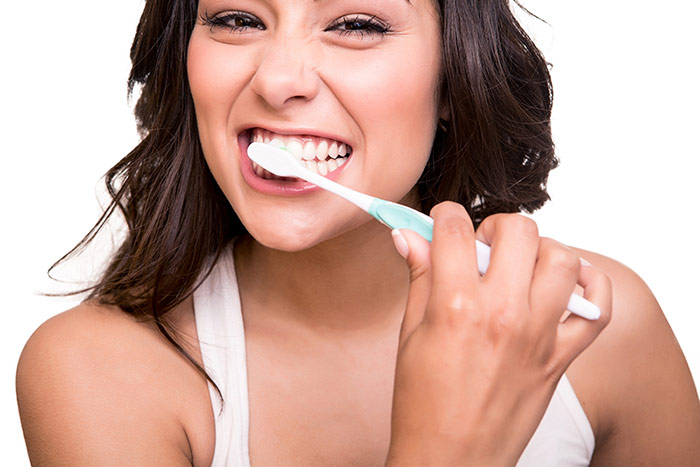You Might Be Brushing Your Teeth Wrong

You Might Be Brushing Your Teeth Wrong
Brushing your teeth is such a routine habit that you may forget that there’s a right and a wrong way to do it. But proper brushing is super important for preventing tooth decay and gum disease! Here are a few things you may be doing wrong in your dental hygiene habits and what to do instead to make sure your smile stays healthy now and into the future.
You’re Rushing and Brushing Too Hard
Hard and fast may be great for your SoulCycle workout, but not so for your teeth. Whether you’re rushing out the door to work in the morning or groggily stumbling to bed in the evening, there’s a tendency to rush through your dental hygiene routine just to get it over with. If you’re not going to brush for 2 whole minutes, you may think you can make up for it by applying more pressure and scrubbing your teeth harder. Not true! It’s much more important to be thorough and gentle. Brushing too hard can actually weaken your tooth enamel, making your teeth more vulnerable to tooth decay and sensitive teeth. Plus, you can actually irritate an injure your gums by brushing too hard. Take the time to do it right and your smile will thank you!
You’re Using the Wrong Toothbrush
Despite what some ads and commercials might have you think, there is no single brand of toothbrush that most dentists recommend. That being said, there are some guidelines you should always follow when choosing a toothbrush. First, get a soft-bristle brush. We know there are medium bristle and hard bristle options out there, but we’re sort of confused as to why they exist, because they’re not good for your teeth (they can be really hard on your tooth enamel, which can lead to cavities and sensitivity). So stick to a soft bristle brush and only buy a hard bristle one if you’re going to use it to clean the grout in your bathroom.
Believe it or not, size is important too. If you have a smaller mouth, choose a brush with a smaller head that allows you to reach the tighter spaces in the back of your mouth. We’d hate to see your back molars getting neglected just because your toothbrush is too big!
Your Toothbrush Is Ancient
Once you’ve found your perfect toothbrush, try not to get too attached. It’s going to be a three-month relationship at most. That’s right: the lifespan of a toothbrush is only about three months. After that, the bristles get worn out and start sticking out every which way, which makes it hard for them to effectively remove plaque and debris from the surfaces of your teeth. If your toothbrush looks fluffy like a feather duster (or Guy Fieri’s hair), it’s time to toss it.
